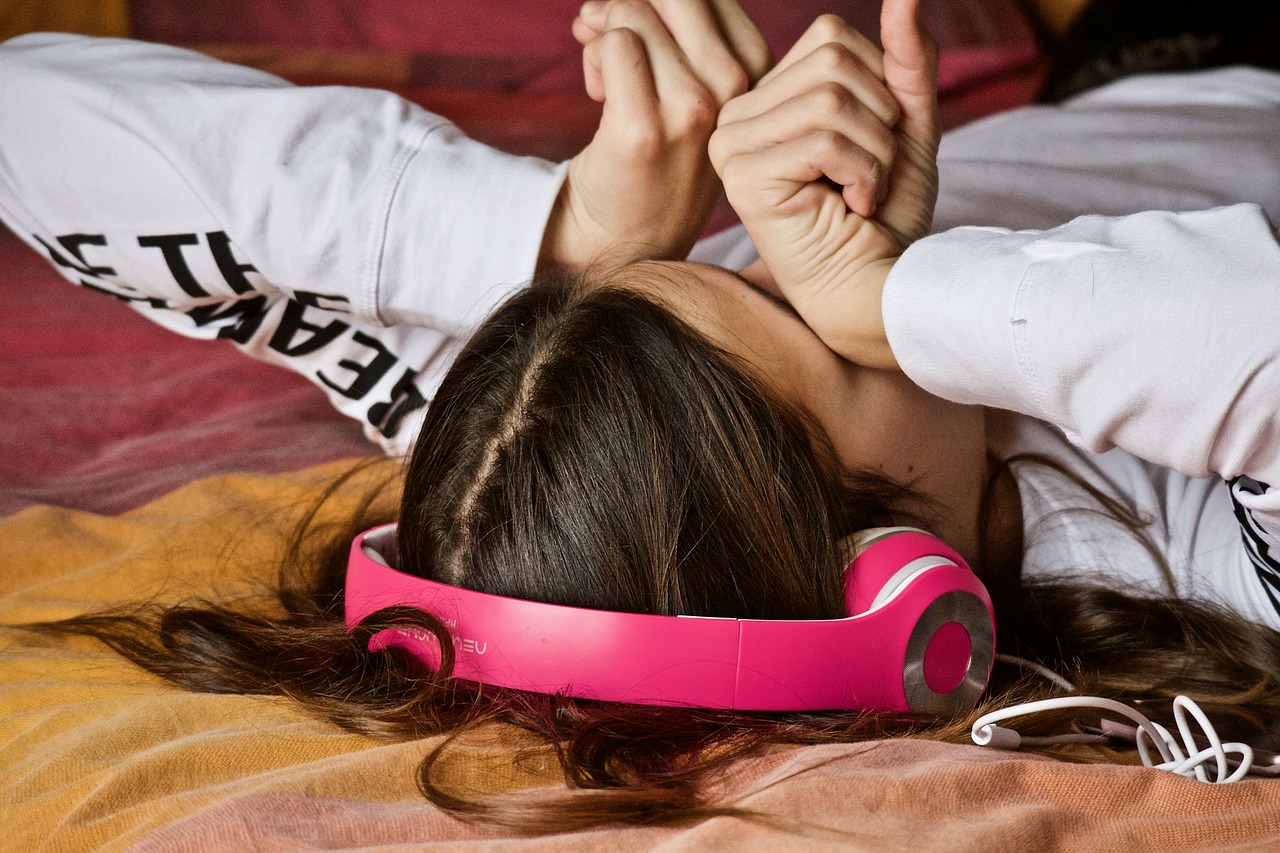
How to Sleep with Headphones
Wearing headphones to sleep can be a great way to encourage yourself to fall asleep and help you get the hours of rest you need. However, it can also be uncomfortable and lead to a stiff neck or sore ears.
The act of falling asleep to relaxing music has been shown to increase dopamine through the brain. Dopamine cannot only make you feel good but also help you to relax. This is a great way to fall asleep faster, and if you’re a light sleeper, it’s a way to drown out unwanted noises around the house.
When you sleep with headphones, you’re freeing your brain from any distractions. If you live in an area where there are streetlights, loud neighbors or even if you have pets that make noises at night, you’ll be able to sleep through it all. There is no need to worry about noise-cancelling technology. Headphones will do the work for you.
All of these benefits are perfect for people who have trouble sleeping. They’re a great way to drown out noises that might be keeping you awake and ready to fall asleep. If you have trouble falling asleep, you should consider these benefits before you head to bed.
I’m going to give you some tips on how to find the right headphones for your sleep. I’ll also cover a few other tricks you can use to get the full benefits of sleeping with headphones while avoiding the problems that come with using them.
How To Sleep With Headphones On Without Ear Pain Or Soreness

Get Some Comfortable Earbuds For Sleeping
The first step is to find some earbuds that are comfortable enough to wear to bed. If you’re like most people, you probably use a cheap pair of headphones for working out or exercising. While these may be fine for short runs or workouts in the gym, they’re not very good for sleeping in. They often come with cheap foam tips that don’t seal out noise, let in sound from the outside world, and quickly become uncomfortable.
For sleeping with headphones on, try buying a more expensive pair of earbuds that have a rubber or foam cover over the speaker. These will provide better noise isolation and won’t hurt your ears as easily when lying on your side. Try to find some with silicone coverings because they’ll be more comfortable than foam for sleeping in. Look for one with a thin wire so that it doesn’t dig into your neck when you lie down.
If you are looking for the Best Headphones for Sleeping, we have curated a list for you to consider.
Put Your Headphones On Before Going To Sleep
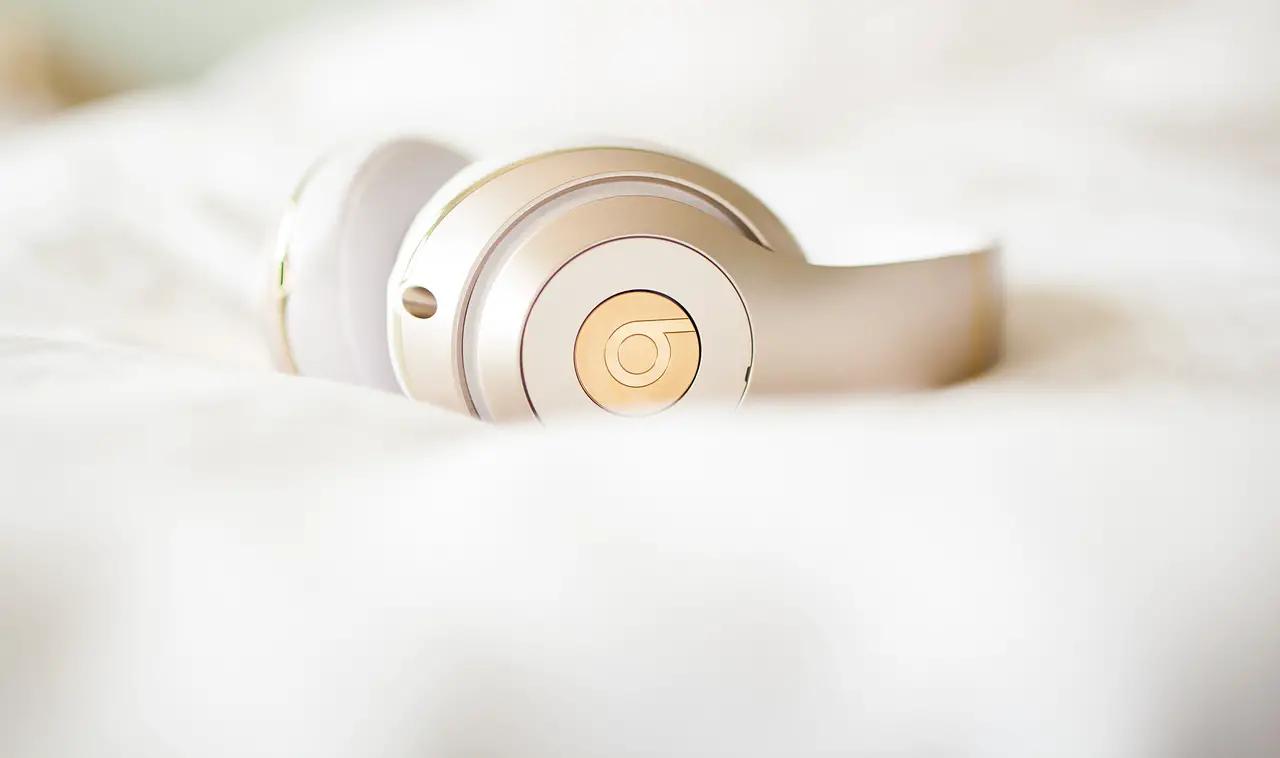
The next step is to put the headphones on your head before you go to sleep. This technique will allow you to lie down in any position and still keep the earbuds on your ears. You won’t have to keep readjusting them throughout the night.
This is best if you’re going to sleep on your side or back because it allows the earbud to rest flat against your ear without putting pressure on it. The wire will also lay flat against your neck without digging in and causing a stiff neck or sore ears.
Turn The Volume Down To Prevent Ear Pain And Soreness
If you like listening to music as you fall asleep, turn the volume down to a lower level. A low volume will prevent the sound from waking someone else up in the same room with you, and it will also reduce ear pain and soreness when you wake up in the morning. Too much volume can cause ear pain while sleeping, especially if you’re sleeping on your side or lying down on your stomach.
Remember that when you sleep with headphones on, you will have them playing for the majority of the night, so it’s essential to keep the volume as low as possible to avoid any side effects.
Be Careful When Sleeping On Your Side
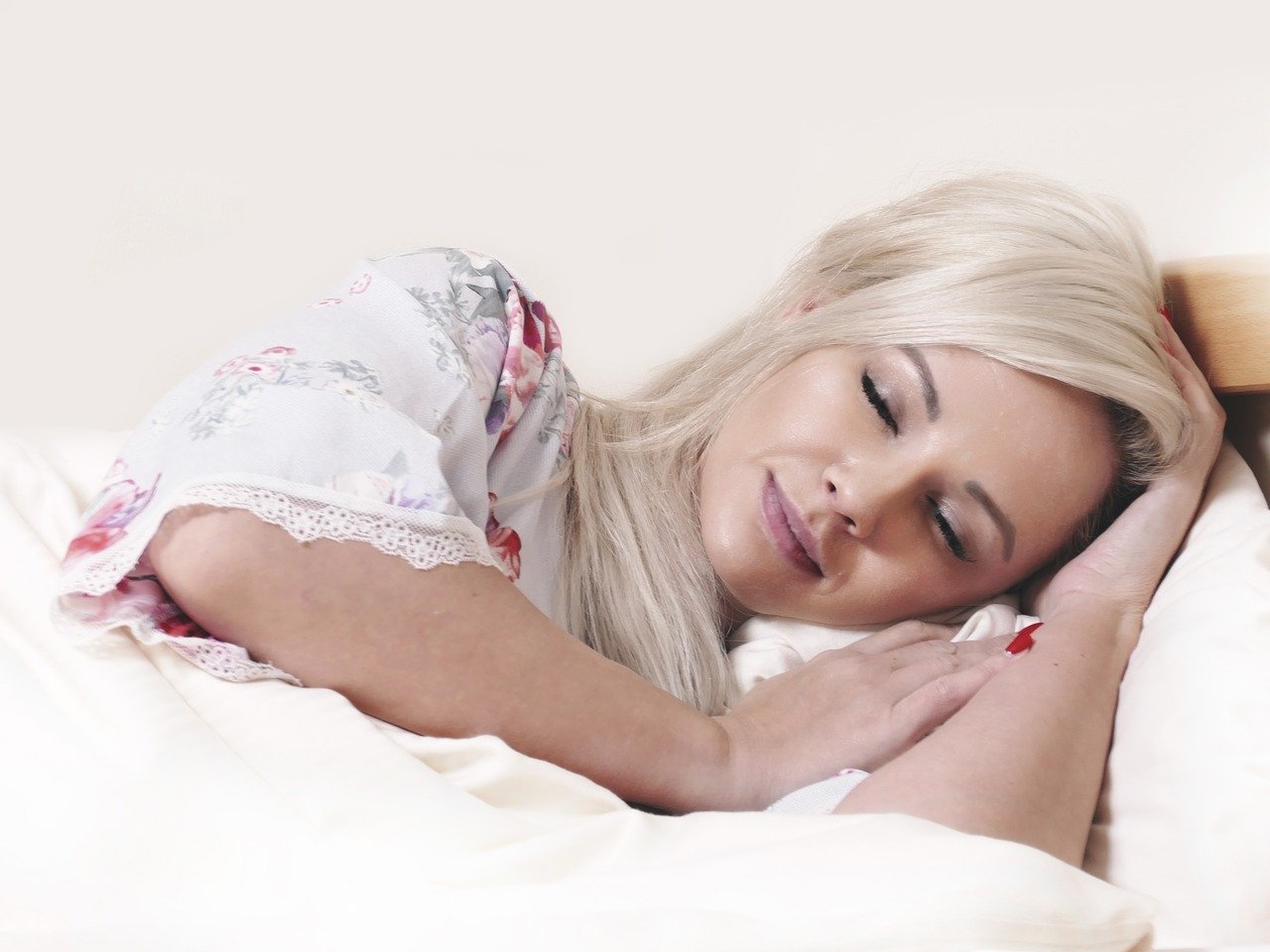
As I mentioned above, putting your headphones on before bedtime is most effective if you’re going to sleep on your side or back. If you prefer sleeping on your stomach, this technique won’t work as well as more pressure from the headphones will be placed directly on your ears instead of being distributed across the band of latex above or around them. This can lead to some uncomfortable pressure buildup in your ears that causes ear pain. You may even experience some discomfort caused by the wires digging into your neck or side while you are sleeping.
It’s best to sleep on your side if you prefer to sleep with headphones on. However, if you have a problem with ear pain when lying on your side, try sleeping on your back instead. This will relieve pressure from the earbud and allow it to rest flat against your ear. However, it may also disturb your sleep by restricting the movement of your head when you turn from side to side.
Choose The Best Sleeping Position For Sleeping With Headphones On
It would be best if you tried to wear the headphones in any position that allows them to rest flat on your ears without putting pressure on them. When you sleep with headphones, it will be different for each person depending on their body shape and the size of their ears. As I mentioned above, it’s best to wear a set of headphones that covers more of your ear than just the tip. This will provide better noise isolation and prevent the earbud from digging into your ear while you are lying down. It may also reduce the risk of ear pain from too much pressure.
Another good idea is to wear a pair of headphones that can be bent or folded down over your neck so they won’t get in the way when you roll over in bed. This is especially important if you have a thicker band or a headband instead of a thin wire connecting two earbuds. The headband can interfere with laying down and rolling over in bed, especially if it’s too large for your head or has edges that stick out and press against your ears or neck.
Consider Adding A Sleeping Mask To Help With Noise Cancellation
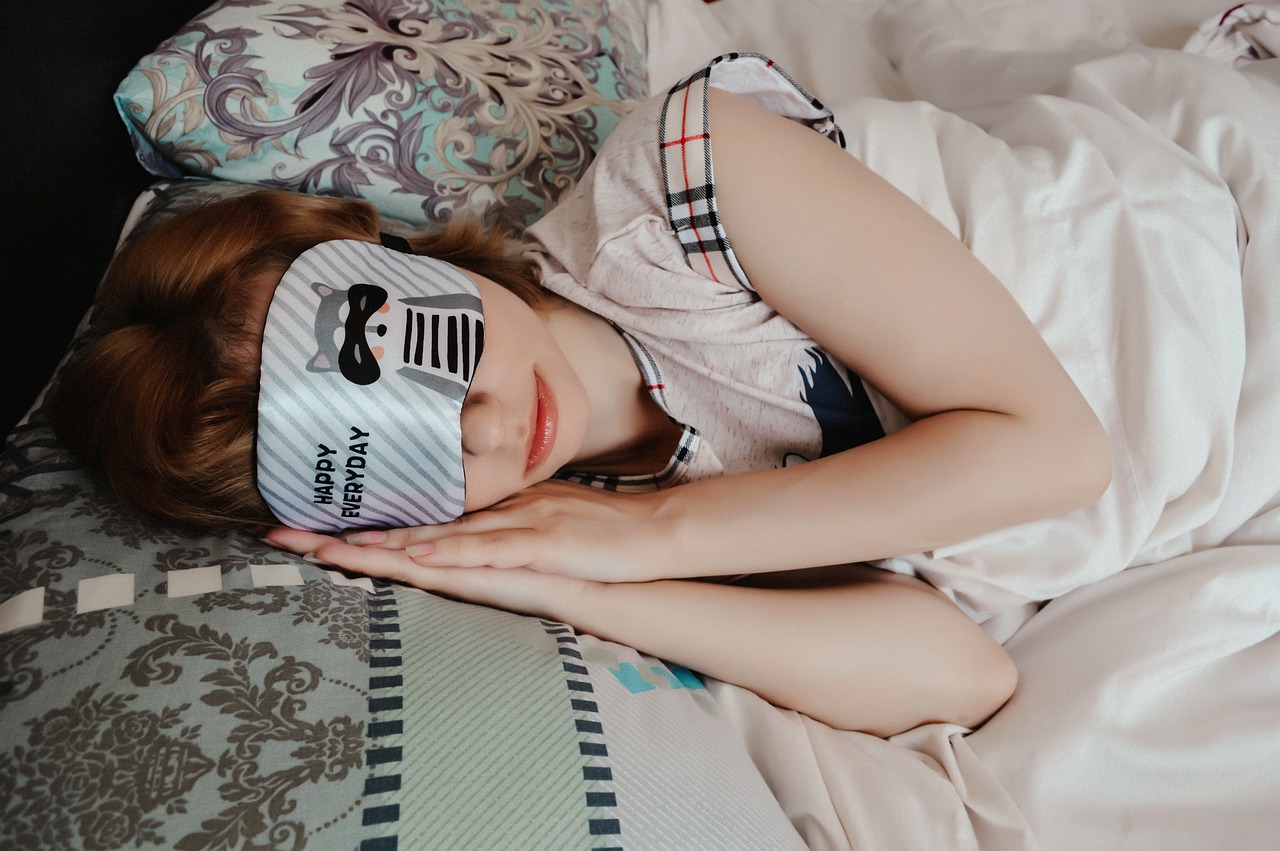
If you have a hard time falling asleep because of the noise around your house, then consider adding a sleep mask to help reduce ambient light and noise levels. The mask will block out light from street lights and other sources, and it will also help you block out sounds by muffling them so they can’t disturb you as much as they usually would. This will help encourage yourself to fall asleep faster so you can enjoy a good night’s rest for an entire night instead of waking up every few hours or restless drifting in and out of sleep all night long!
Health benefits of going to sleep whilst listening to music.
Studies have shown that listening to calming music can help with insomnia and other sleep disorders. Relaxing music is known to boost melatonin production and help the body relax.
The release of dopamine is also known to aid the process of falling asleep. Listening to soothing music can also help with other sleeping disorders such as restlessness and difficulty in breathing.
“There are different types of music that are very effective in aiding sleep. Some songs have been shown to alter heart rate, breathing and body temperature, which can result in a calmer state and make it easier to fall asleep.”
The American Sleep Association.
Health benefits of removing distractions when sleeping.
As we all know, changing your environment can help with sleep. By removing distractions, it will be easier for the body to relax and fall asleep quicker. Sleeping with headphones on is an excellent way of removing distractions from the bedroom. Music is extremely effective at blocking out noises. Headphones can be used to block out other noises.
Studies have shown that music has a relaxing effect on the body. It is especially effective when listening to music at 60 beats per minute or slower. Examples of this are: ‘Lullaby’ by The Cure and ‘Sleep’ by John Mayer. It is also suggested to use headphones that eliminate background noise and which are specifically designed for sleep whilst wearing headphones.
The release of dopamine is also known to aid the process of falling asleep. Listening to soothing music can also help with other sleeping disorders such as restlessness and difficulty in breathing.
Health benefits of relaxation when going to sleep.
Relaxation is crucial when it comes to falling asleep. By relaxing your body, it will help with falling asleep quicker and will reduce the likelihood of suffering from insomnia. Relaxing music can help with this process a lot by helping to reduce stress levels and helping you feel more relaxed.
Studies have shown that listening to relaxing music will help with overall feelings of relaxation and feelings of happiness. This will have a positive impact on sleep in general. Examples of relaxing music include: ‘Gentle Evening’ by Enya, and ‘Peaceful Piano Music’ by Beethoven. Listening to calming music is also a great way of relieving stress and anxiety before going to sleep.
What Are the Disadvantages of Sleeping with Headphones On?
If you’ve tried sleeping with headphones on before, you know how annoying it is to have to remove them every time you turn over in bed. It’s easy to wake up with earbuds still in your ears. Or, if you’re sleeping with earbuds or headphones over-the-ear, you may wake up with a stiff neck because your ears are boxed in and can’t move around.
It can be even worse if you’re sleeping next to someone else. They probably won’t appreciate the sound of your music playing at a low volume all night long! If they do decide to sleep in the same bed with you, they may feel boxed in by your headband and the earpieces pressed against their head.
Before you start to sleep with headphones on, make sure to consider the disadvantages:
Will Sleeping With Headphones Give You A Headache?
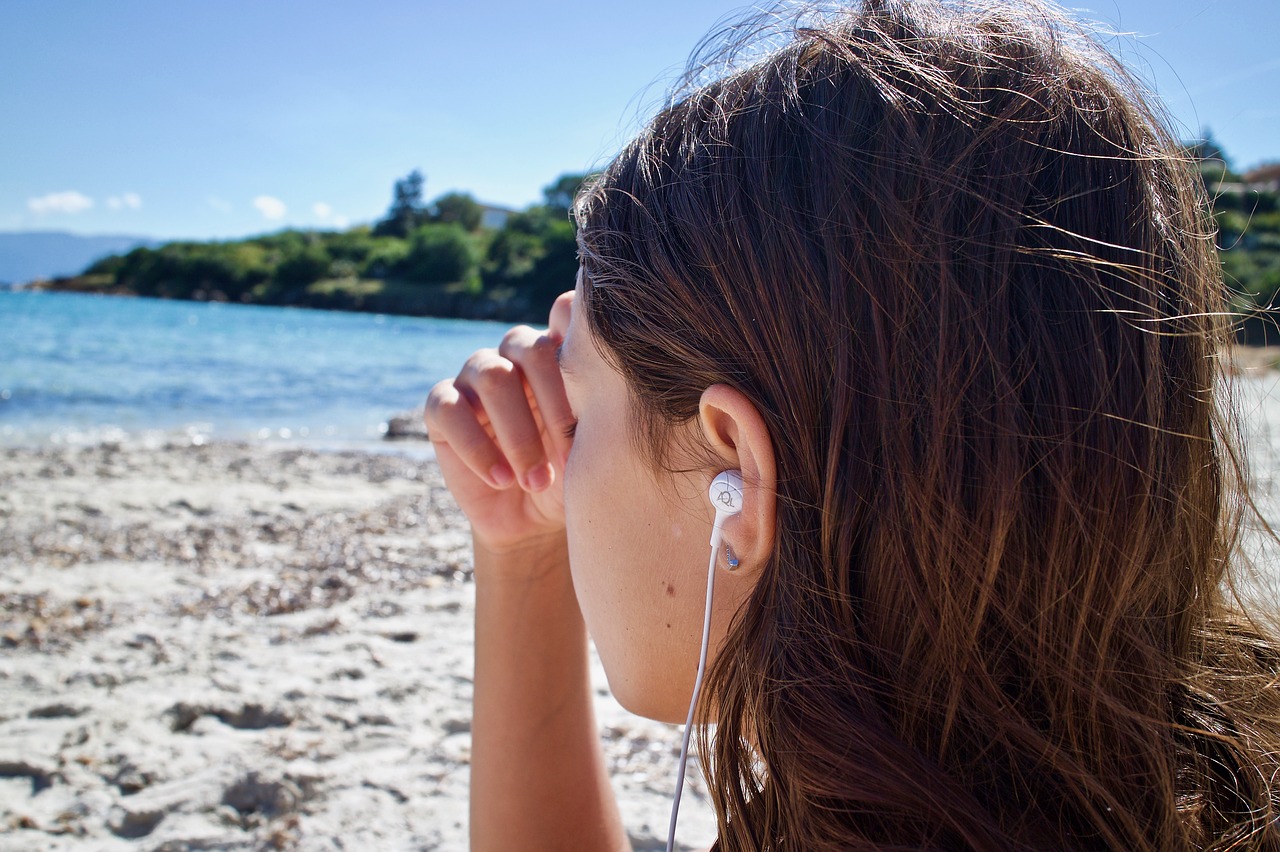
Some people report that sleeping with headphones on causes headaches. The reason is that, if you sleep on your side, the earbud can press against your ear and squeeze it enough to cause pressure buildup inside. This can cause a headache that only goes away when you take the headphones off and relieve the pressure.
Tinnitus and hearing loss.
According to a study in the Journal of Clinical Sleep Medicine, individuals who use headphones or earbuds at night are more likely to experience tinnitus. Tinnitus is a condition in which the sufferer hears a ringing or buzzing noise. It typically occurs after one has been exposed to loud noises. While the likelihood of developing tinnitus from using headphones at night is low, those who are already experiencing it could exacerbate their symptoms. Those with existing hearing loss might also develop tinnitus from listening to loud music on headphones at night, which could make it more difficult for them to hear properly.
Jaw problems and TMJ pain.
When you listen to loud music through headphones, you’re compressing your jaw muscles and stressing them out. This can lead to temporomandibular joint disorder (TMJ), which causes severe jaw pain and headaches during the day and disrupts sleep at night. TMJ is caused by applying pressure to one’s jawbone and grinding it back and forth when eating or speaking; it may be brought about by clenching one’s teeth during sleep when wearing headphones.
Ear infections.
Wearing headphones to sleep can cause inflammation and block the ears, which can lead to ear infections. This can be caused by poor circulation and buildup of wax in the ears.
Sleeping with earbuds can also increase the chances of Sudden Infant Death Syndrome (SIDS) in infants when placed in a crib with an infant. A recent study found that infants who slept with smart technology may be put at additional risk of SIDS.
Alternatives to sleeping with headphones on
White noise machine.
A white noise machine creates a sound of rushing water or falling rain. It drowns out other noises that are distracting you from falling asleep. The best thing about using a white noise machine is that it is very cheap and can be bought at any store. A white noise machine can be placed under the pillow or next to you while you sleep on your side.
A meditation app.
A meditation app can help you to meditate while you are trying to fall asleep. You can pick from a wide range of different soothing sounds such as birds chirping and waves crashing. The meditation app is excellent for people who are new to meditation. It doesn’t require any discipline or expertise in the practice of meditation.
The best thing about using a meditation app is that it is free and can be downloaded on your phone.
Sleep with the fan on.
You can use the fan in your room to create some white noise and drown out other sounds that distract you from falling asleep. The fan can be placed next to your bed or under your pillow when sleeping on your side.
Sleeping with a fan is also an excellent alternative to sleeping in a noisy environment. If you can’t fall asleep because of noise pollution, this will help you to sleep faster, and it is an excellent alternative to sleeping with headphones on.
Conclusion
There is no doubt that there are many benefits when you sleep with headphones on, but you need to ensure that you are conscious of the additional risks.
When you’re trying to get ready for bed, many things need to be done before you can get to sleep, like brushing your teeth, flossing, and taking care of other daily tasks. Listening to music can help distract you from these thoughts and allow you to focus on the task at hand.
Several studies support the claim that listening to music while performing other tasks can lead to better results. For instance, there was a study conducted by the University of Milano-Bicocca, where participants were able to type faster and more accurately after listening to music than those who were in silence. There was also another study conducted with students who were able to perform better on a series of notes after listening to music than those who had no music.
Music can also help you feel less stressed and more motivated, which can lead to better results with your tasks. These benefits are why many people listen to music while they’re working out.
To conclude, wearing headphones to sleep can be a great way to get your body ready for sleep. Not only does it help you relax, but it also enables you to fall asleep quicker.
